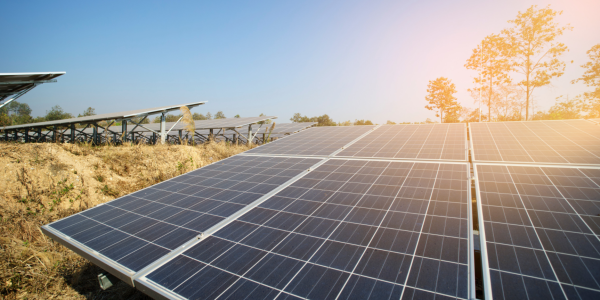Good Solar: Bringing Solar to America One Community at a Time
June 12, 2020
North Carolina prides itself with its significant amount of solar power, coming in second nationally with 5.8 percent of the state’s electricity generated from solar panels. This profitable, clean energy source, used both at a residential and utility scale, holds great potential for much broader installation, both within NC and nationwide. Good Solar plans to bridge this gap and bring solar energy to those who are not able to afford the steep current prices. With expensive upfront installation costs, this discourages many communities, specifically low-income areas, in reaping the benefits of the technology in the long run. With the help of Good Solar and its partners, this technology can be utilized not only to provide a more eco-friendly energy source, but also to stimulate community development, economic growth and promote social justice.
Founded by two recent University of Chapel Hill Law School graduates, Ethan Blumenthal and Miles Wobbleton, Good Solar is on track to accomplish significant change in the near future. The idea originated from a paper on solar regulation that Blumenthal wrote for one of his law classes. As he researched the topic, he recognized a niche for nonprofit solar developers within North Carolina. By matching funding with needs, Good Solar revolutionizes the extent that solar can be offered and expands the market to all income levels. Furthermore, the company goes beyond just solar installation as it stays engaged with its community partners, educating residents on the benefits of solar and ensuring the program continues to thrive.
The company’s unique perspective on working towards a carbon free future works to address and positively impact all aspects of sustainability. By financing the projects in low income communities, the residents are able to utilize the solar power generated, and pay off the installation costs over time by selling the energy back to the utilities. The company also plans to work with the government, specifically energy utilities, to accomplish these projects and create a winning situation for all involved.
In the future, Blumenthal hopes to work with legislation and encourage the inclusion of renewables in the coming stimulus acts following the pandemic. In particular, he has hopes for a zero-interest loan program specifically for renewable energy development for non-profits in low income communities. If the policy is supported, it would be a significant boost for the company and helps the program expand quickly.
Although Good Solar is still in its developing stages, it has the potential to positively impact much of North Carolina, and eventually the nation, and bring clean, renewable energy to all. The Clean Tech Summit looks forward to seeing all that Good Solar accomplishes, and encourages readers to learn more on their website.
About the Author
Alexandra Parvin, Business Administration, Class of 2023, University of North Carolina at Chapel Hill
